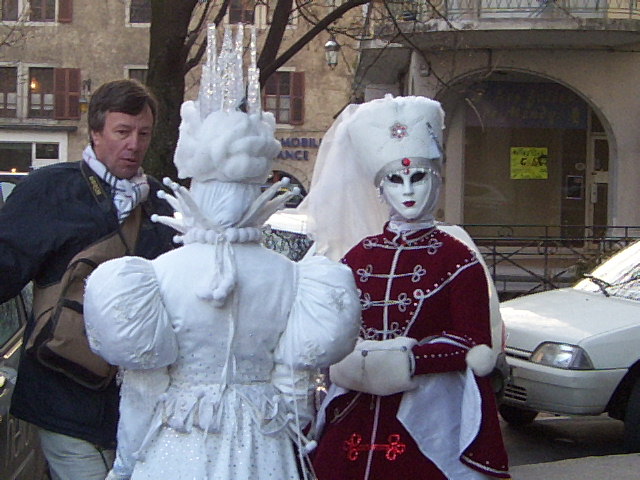Here’s another selection from the draft of “Clear and Present Thinking”.
Of all the things that people do when they get involved in their intellectual environments, perhaps the most important things they do are identify problems and ask questions.
Usually, discussions in one’s intellectual environment are prompted by a need. And often, this need takes the form of a problem which can’t be solved until you gather some kind of information. Sometimes the problem is practical: that is, it has to do with a specific situation in your everyday world. Perhaps you have an unusual illness and you want to recover as soon as possible. Perhaps you are an engineer and your client wants you to build something you’ve never built before. Perhaps you just want to keep cool on a very hot day and your house doesn’t have an air conditioner. The problem could also be theoretical: in that case, it has to do with a more general issue which impacts your whole life altogether, but perhaps not any single separate part of it in particular. Religious and philosophical questions tend to be theoretical in this sense. You might have a decision to make which will change the direction of your life irreversibly. You might want to make up your mind about whether God exists. You might be mourning the death of a beloved friend. You might be contemplating whether there is special meaning in a recent unusual dream. You might be a parent and you are considering the best way to raise your children.
The philosopher Karl Jaspers described a special kind of problem, which he thought was the origin of philosophical thinking. He called this kind of problem a Grenzsituationen, a “limit situation”.
Limit situations are moments, usually accompanied by experiences of dread, guilt or acute anxiety, in which the human mind confronts the restrictions and pathological narrowness of its existing forms, and allows itself to abandon the securities of its limitedness, and so to enter new realm of self-consciousness. (Stanford encyclopaedia of philosophy, online edition, entry on Karl Jaspers.)
In other words, a limit situation is a situation in which you meet something in the world that is unexpected and surprising. It is a situation that more or less forces you to acknowledge that your way of thinking about the world so far has been very limited, and that you have to find new ways to think about things in order to solve your problems and go ahead with your life. This acknowledgement, according to Jaspers, produces anxiety and dread. But it also opens the way to new and (hopefully!) better ways of thinking about things.
In response to such problems, we ask questions. Perhaps more than the problems do, it is the questions which get the mind thinking. Questions express doubts, identify problems, call for solutions, and demand answers. Indeed we might not fully understand the nature of a given problem until we have asked a decent question about it. Moreover, the best answers to one’s questions tend to become ideas, beliefs, propositions, theories, arguments, and world views. These, in turn, guide our lives and our choices in numerous ways.
But some kinds of questions are better than others, and it can be important to discern the difference between the two.
Good questions are:
Tenacious. We cannot easily put them away or ignore them.
Direct. They address the actual problem which you are facing, and not a tangential or unrelated issue.
Searching. When you pose a good question, you don’t already know the answer. You might have a rough or vague idea of what the answer might be, but you don’t know for sure yet, and you are committed to finding out. Or, you might have several possible answers, and you want to find out whether any of them are good answers, or which one is the best.
Systematic. Although you don’t have a clear answer to your question, your question is associated with a method or a plan, even if only a loose one, with which you can search for an answer. In other words: even when you don’t know the answer, you still know what you’re doing, and you’re not scrambling in the dark.
Useful. The process of answering a good question actually helps you solve your problem.
Open. There might be more than one possible correct answer. (There can also be more than one possible wrong answer.) With several answers to your question, you also have to do a lot more more work to find which of them is the best one, if your circumstance requires you to pick just one answer. But that work is ultimately very useful, and almost always leads us to better quality answers.
Fertile. Some of the better answers to the question prompt more good questions. In this way, good questions can keep the mind active for a long time.
Controversial. A good question is often one which addresses itself to beliefs, ideas, ways of living, etc., which people do not normally question. It may even be a question which no one else, or very few others, have ever asked before. This does not necessarily mean that the questioner is being aggressive or confrontational. It should still be a searching question, and a direct question, and so on. But with a controversial question, the questioner often places herself at odds, in some way, with those who are committed to the beliefs being questioned, or who might not want the question asked at all. Indeed a controversial question often places the questioner in some danger by the very act of asking it. That danger might be social: by asking the question, she might risk being cold-shouldered or ostracized by her friends. Or it might be physical: by asking the question, she might place herself at odds against politically or economically powerful people and institutions.
The more of these qualities which a question has, the better a question it is. There are also several kinds of bad questions. Here are a few examples:
Rhetorical questions. This is a question in which the questioner already knows the answer, and is trying to prompt that same answer from his or her listeners. Although rhetorical questions can be interesting and perfectly appropriate in poems or storytelling, in a nonfiction text or in a more ‘straight talk’ conversation they are stylistically weak. Rhetorical questions are often plain statements of belief or of fact merely phrased in the form of a question. So it is generally better to state the belief or the fact directly, as a proposition. Also, it’s always possible that someone else will answer the rhetorical question in an unexpected way. Rhetorical questions can also be used as forms of verbal aggression. They position the questioner as the controller of the debate, and they place others on the defensive, and make it harder for them to contribute to the debate as an equal.
Leading questions: These are questions which are designed to manipulate someone into believing something that they may or may not otherwise believe. Normally, leading questions come in a series, and the series is designed to make someone predisposed to respond to the last question in the series in a particular way. Leading questions are often used in a form of political campaigning called ‘push polling’ (to be discussed in the chapter on Reasonable Doubt).
Loaded or Complex Questions: A loaded question is one which cannot be given a straight answer unless the person answering it accepts a proposition that he or she might not want to accept. (More discussion of this kind of question appears in the chapter on Fallacies.) Like rhetorical questions, loaded questions can also be used aggressively, to control a debate and to subordinate the other contributors.
Obstructionist questions: This is the kind of question that someone asks in order to interrupt someone else’s train of thought. Obstructionist questions often look like good questions, and in a different context they may be perfectly reasonable. But the obstructionist question is designed distract a discussion away from the original topic, and prevent the discussion from reaching a new discovery or a clear decision. Typically, the obstructionist question asks about definitions, or pushes the discussion into a very abstract realm. It may also involve hair-splitting the subtle variations of the meaning of certain words. In this sense an obstructionist question is much like the fallacy of ‘red herring’.
Framing Questions: There’s probably no such thing as a question which doesn’t frame the answers which flow from it, even if only in a small way. But it is possible to ‘cook’ or to ‘rig’ a question such that the only direct answers are ones which remain within a certain limited field of presuppositions, or within a certain limited world view. Framing questions may even share some of the qualities of good questions: they might allow more than one answer, or they might open the way to further questions. But they are also like loaded questions in that they presuppose a certain way of thinking or talking about the topic, and you can’t give a straight answer unless you reply within the bounds of that way of thinking and talking. The framing question uses specific words, terms, and phrases to limit the way a certain topic can be discussed.
Empty Questions. An empty question is one which has no answer. Sometimes people will declare a question to be empty when in fact it is ‘open’: but a question with more than one possible good answer is not an empty question. So it is important to understand the difference between the two. A question is empty when all its answers lead to dead ends: when, for instance, the best answers are neither true nor false, or when the question cannot be given a straight answer at all.4 Such questions might be interesting for artistic or religious or similar purposes, and they can be the basis for some beautiful poems and meditations, or some very enjoyable comedy. But reasoning about such questions in a logical or systematic way doesn’t produce any new discoveries. An empty question cannot tell you anything you don’t already know.
One final quality of good questions that deserves notice is this one. The answer to a good question can be expressed in the form of a proposition. But we will see more about propositions a little later on.




